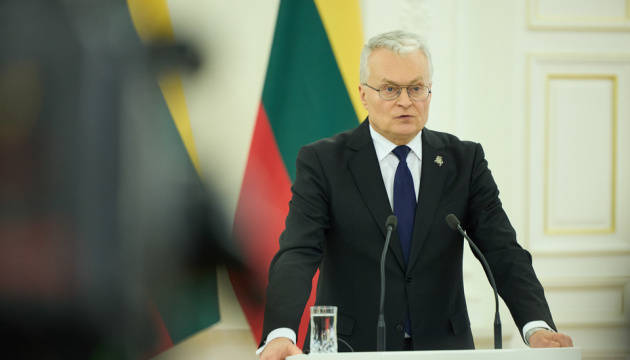“Lithuanian President Gitanas Nauseda said that the state budget approved by the parliament on Thursday allows the country to allocate 4% of GDP to defense in 2025.”, — write: www.ukrinform.ua
Lithuanian President Gitanas Nauseda said that the state budget approved by the parliament on Thursday allows the country to allocate 4% of GDP to defense in 2025.
“The fact that we will allocate 4% of GDP to defense is inspiring,” Nauseda emphasized.
It is noted that in the draft state budget of the country, about 2.5 billion euros were initially allocated for defense, which is equal to a little more than 3% of GDP. However, the new government has increased the borrowing limit for next year by around 800 million euros, an amount that will now increase defense spending to 4% of GDP.
At the same time, according to Nauseda, the Lithuanian government will have to find ways to maintain fiscal discipline.
“We budgeted 4% of GDP for defense, but part of this money will have to be borrowed. “We’ll probably have to decide how we’re going to deal with defense spending if, for example, there’s a conflict between a 3 percent budget deficit and the need to borrow,” he said.
The president also praised the government’s plans to negotiate with the European Commission on an exception that would allow additional defense funding even if it exceeds the 3% budget deficit limit set by the Maastricht Treaty.
The report states that the new Lithuanian government made only minimal adjustments to the state budget for 2025, as its deficit was already close to 3% of GDP, promising to adjust it next year.
Read also: Lithuania banned citizens of Russia, Belarus and China from serving in the army In 2025, Lithuania’s state budget will attract EUR 17.98 billion in revenues, including EU funds, while expenditures are estimated at EUR 23.1 billion.
As reported by Ukrinform, on Wednesday the President of the Republic of Lithuania Gitanas Nauseda called on NATO allies to increase security assistance for Ukraine by more than 40 billion euros every year, as agreed during the summit in Washington, and also suggested that each member country of the Alliance allocate 0.25 percent of GDP to support Ukraine.
